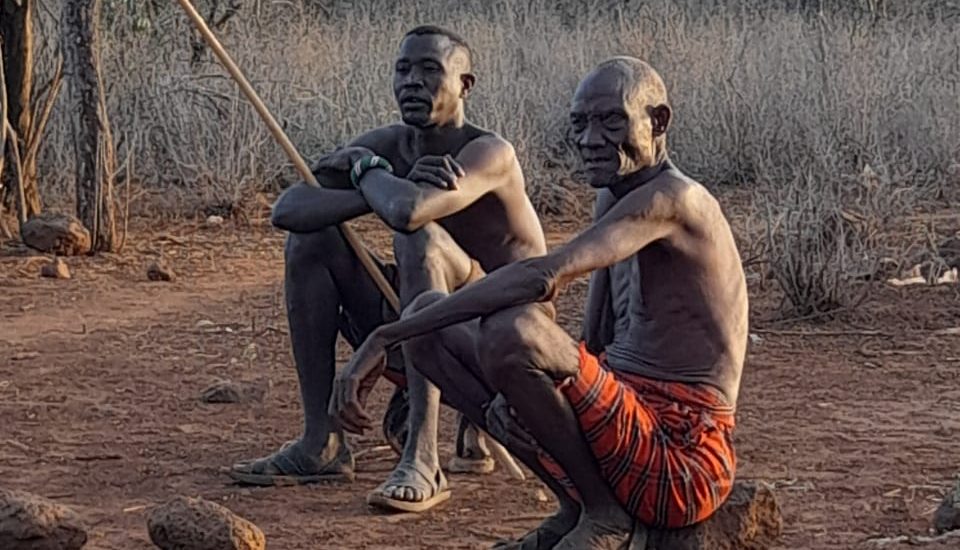In our sixth edition of our Wazimba Travel Tanzania series, we invite you to explore the human tapestry that makes Tanzania such a culturally rich destination. Beyond its spectacular landscapes and extraordinary wildlife, Tanzania’s greatest treasure may be its people—over 120 distinct ethnic groups who maintain vibrant cultural traditions while embracing a shared national identity. As your trusted indigenous tour operator with extensive networks throughout East Africa, Wazimba Travel is delighted to guide you through meaningful cultural experiences that add profound dimension to your East African journey, from traditional Maasai villages to dynamic urban centers.
The Maasai: Tanzania’s Iconic Cultural Ambassadors
Perhaps no cultural group is more closely associated with East Africa than the Maasai, whose distinctive dress, impressive height, and semi-nomadic pastoralist lifestyle have made them internationally recognizable. However, experiencing authentic Maasai culture requires moving beyond tourist stereotypes to genuine cultural exchange.
Authentic Maasai Cultural Experiences
The Maasai homelands stretch across northern Tanzania, particularly in Ngorongoro Conservation Area and areas surrounding the northern safari circuit. Wazimba Travel arranges respectful visits to Maasai communities that provide meaningful insights while ensuring direct community benefits:
Olpopongi Maasai Cultural Village: This authentic village in West Kilimanjaro offers immersive experiences where visitors can:
- Learn about traditional Maasai house construction and family life
- Participate in cattle herding alongside community members
- Witness traditional ceremonies including the famous jumping dance (adumu)
- Practice spear throwing and other traditional skills
- Learn about medicinal plants used in traditional healing practices
Maasai-Operated Conservation Areas: Several wildlife conservancies around the Serengeti-Mara ecosystem are owned and managed by Maasai communities, including:
- Loliondo Conservation Area, where community guides share their extraordinary tracking skills
- Piyaya Cultural Tourism Enterprise, which combines wildlife viewing with authentic cultural immersion
- Enashiva Nature Refuge, where tourism directly funds community development initiatives
Ethical Considerations for Maasai Village Visits:
- Choose community-led initiatives where tourism revenue directly benefits local residents
- Ask permission before taking photographs
- Show respect for cultural practices and ceremonies
- Purchase crafts directly from artisans rather than through middlemen
- Be aware that some “traditional villages” are created primarily for tourists—Wazimba Travel selects authentic experiences where real cultural exchange occurs
The Hadzabe and Datoga: Living Heritage of Ancient Traditions
In the Lake Eyasi region of northern Tanzania, opportunities exist to respectfully engage with some of Africa’s most unique cultural groups.
Hadzabe Hunter-Gatherers
The Hadzabe represent one of the world’s last remaining hunter-gatherer societies, maintaining lifeways that have changed little over thousands of years:
- Join Hadzabe guides on early morning hunting expeditions using traditional bow and arrow techniques
- Learn about wild plant gathering and traditional food preparation
- Participate in traditional dances and storytelling sessions
- Observe ancient rock art sites dating back thousands of years
Through carefully managed visits, Wazimba Travel helps sustain traditional knowledge while ensuring tourism benefits community conservation efforts and supports land rights initiatives.
Datoga Blacksmiths and Pastoralists
Near the Hadzabe territory live the Datoga (also known as Barabaig), skilled pastoralists and craftspeople known particularly for their metalworking:
- Visit traditional blacksmith families who craft arrowheads, knives, and jewelry using ancient techniques
- Observe distinctive facial tattoos and learn about their cultural significance
- Experience traditional homesteads built around cattle culture
- Purchase directly from artisans creating beautiful brass jewelry and leather goods
Wazimba Travel arranges respectful visits with cultural guides who facilitate meaningful exchanges rather than superficial demonstrations.
Coastal Swahili Culture: Africa’s Maritime Heritage
Tanzania’s Indian Ocean coastline has been a crossroads of cultural exchange for over a millennium, creating the unique Swahili civilization that blends African, Arab, Indian, and Persian influences.
Stone Town Cultural Immersion
Beyond architectural exploration, Wazimba Travel offers deeper cultural experiences in Zanzibar’s historic center:
- Dawn fish market visits with local chefs who explain traditional seafood preparation
- Exclusive access to private homes featuring traditional Swahili interior design
- Hands-on workshops with master woodcarvers creating ornate doors and furniture
- Private performances of taarab music in historic courtyards
- Specialized tours focused on Zanzibar’s complex history from early trade to the abolition of slavery
Coastal Traditions Beyond Zanzibar
The mainland coast offers equally fascinating cultural experiences:
Bagamoyo: Once East Africa’s most important trading port, this historic town offers:
- The ruins of Kaole, featuring East Africa’s oldest intact mosque dating to the 13th century
- The former German colonial capital’s architectural heritage
- The College of Arts, where traditional music and dance traditions are preserved and taught
- Fishing village experiences showing how traditional maritime skills continue today
Pangani and Tanga: These northern coastal communities maintain traditions including:
- Maulidi celebrations featuring distinctive Swahili religious performances
- Traditional dhow building using methods passed down through generations
- Women’s cooperative ventures preserving traditional weaving and cuisine
Urban Tanzania: Dynamic Cultural Hubs
While rural traditions hold strong appeal, Tanzania’s urban centers offer vibrant contemporary cultural scenes that showcase the nation’s creative energy.
Dar es Salaam: Tanzania’s Cultural Capital
Though no longer the official capital, Dar remains the country’s largest city and cultural hub:
Tinga Tinga Cultural Centre: Named after Tanzania’s most famous artistic style, this cooperative supports contemporary artists creating distinctive paintings characterized by vibrant colors and stylized forms.
Makumbusho Village Museum: This open-air museum features authentic traditional houses from 16 different ethnic groups, with cultural demonstrations throughout the day.
Slipway and Oyster Bay: These waterfront areas host weekend markets featuring contemporary Tanzanian designers creating fashion, jewelry, and homewares that blend traditional motifs with modern aesthetics.
Culinary Experiences: Dar’s restaurant scene showcases Tanzania’s cultural diversity:
- Street food tours through neighborhoods like Kariakoo
- Swahili cooking classes with local chefs
- Contemporary restaurants reimagining traditional ingredients
Arusha: Gateway to Cultural Exploration
This northern city serves as both safari hub and cultural center:
Cultural Heritage Centre: Beyond being Tanzania’s largest souvenir emporium, this complex includes a museum of Tanzanian artifacts and workshops where artisans practice traditional crafts.
Maasai Markets: Weekly markets draw pastoralists from surrounding regions to trade livestock and crafts, offering authentic glimpses into commercial traditions.
Fair Trade Cooperatives: Organizations like Shanga employ people with disabilities to create high-quality crafts using traditional techniques adapted for contemporary tastes.
Festivals and Celebrations: Tanzania’s Living Heritage
Timing your visit to coincide with traditional festivals adds extraordinary dimension to cultural experiences:
Zanzibar International Film Festival (July): East Africa’s largest cultural event combines film screenings with music, dance, and literary events that celebrate the Swahili cultural world.
Mwaka Kogwa (July/August): This traditional Shirazi New Year celebration in Zanzibar features mock fighting, community feasting, and traditional music.
Kilimanjaro Marathon (February/March): This sporting event includes cultural performances and showcases the vibrant Chagga culture of the mountain slopes.
Usambara Flower Festival (September): Celebrating the extraordinary biodiversity of the Eastern Arc Mountains alongside cultural performances from local communities.
Maji Maji Festival (July/August): Commemorates Tanzania’s historic resistance against German colonial rule through educational events and performances.
Wazimba Travel can arrange itineraries that coincide with these celebrations, providing insider access to events often missed by standard tourist circuits.
Community-Based Tourism: Travel With Purpose
Tanzania has emerged as a leader in community-based tourism initiatives, where local communities directly manage, operate and benefit from tourism enterprises.
Model Community Tourism Projects
Mto wa Mbu Cultural Tourism Programme: This village near Lake Manyara offers:
- Guided bicycle tours through banana plantations with irrigation system explanations
- Traditional brewing demonstrations showing banana beer production
- Home-hosted meals featuring local specialties
- Rice farming participation during planting and harvest seasons
Mulala Cultural Tourism Enterprise: In the foothills of Mount Meru, this women’s cooperative offers:
- Cheese-making workshops using traditional techniques
- Coffee growing and processing demonstrations
- Forest conservation walks highlighting indigenous knowledge
- Home stays with local families
Longido Cultural Tourism: This Maasai-operated program provides:
- Guided mountain hiking with Maasai trackers
- Traditional medicine walks identifying healing plants
- Boma overnight stays with families
- Livestock market experiences
These initiatives ensure tourism dollars directly benefit communities while providing visitors with authentic experiences far beyond standard commercial tourism.
Artisanal Crafts: Taking Tradition Home
Tanzania’s rich craft traditions provide not just souvenirs but connections to ancient skills:
Makonde Carving: Originating from southern Tanzania, these intricate ebony sculptures represent some of Africa’s most sophisticated wood carving traditions.
Tingatingą Painting: This distinctive art style originated in the 1960s and features vibrant, stylized depictions of wildlife and village scenes.
Maasai Beadwork: The elaborate beaded jewelry created by Maasai women uses geometric patterns that convey specific cultural meanings and status.
Zanzibar Chests: These ornately carved wooden chests represent the height of Swahili craftsmanship, traditionally used to store a bride’s trousseau.
Textile Arts: From kanga cloth with Swahili proverbs to handwoven Sukuma baskets, textile traditions flourish throughout Tanzania.
Wazimba Travel guides can help you find authentic crafts created by genuine artisans rather than mass-produced imports, including arranging visits to workshops where you can see craftspeople at work.
Respectful Cultural Engagement: Guidelines for Meaningful Connections
As you prepare for cultural experiences in Tanzania, these principles ensure respectful and rewarding encounters:
Learn Basic Swahili: Even simple greetings open doors to warmer interactions:
- “Jambo” (Hello)
- “Asante” (Thank you)
- “Tafadhali” (Please)
- “Habari?” (How are you?)
Dress Appropriately: Particularly when visiting religious sites or traditional communities:
- Cover shoulders and knees in conservative areas
- Remove shoes when entering homes or religious buildings
- Ask before wearing traditional clothing or adornments
Photography Ethics:
- Always ask permission before photographing people
- Offer to share digital images via email or WhatsApp
- Be prepared to pay small fees for photography in some communities
- Avoid disruptive photography during ceremonies or prayers
Support Sustainable Initiatives:
- Purchase crafts directly from artisans
- Choose locally-owned accommodations and restaurants
- Participate in community-led tourism programs
- Consider appropriate gifts for communities (school supplies, medical items)
The Wazimba Travel Cultural Difference
As an indigenous tour operator with deep connections to East African communities, Wazimba Travel offers cultural experiences that go beyond superficial tourist presentations:
- Our carefully selected local cultural guides include specialists in anthropology, history, and cultural heritage management
- We maintain long-term relationships with Tanzanian communities, ensuring fair compensation and mutual respect
- Pre-visit cultural briefings help travelers understand appropriate behavior and meaningful questions
- We select experiences based on community benefit, not just tourist appeal
- We regularly evaluate our local partners to ensure cultural integrity and sustainable practices
Ready to Experience Tanzania’s Cultural Richness?
Tanzania’s extraordinary cultural diversity offers travelers the opportunity to engage with living traditions ranging from ancient hunter-gatherer lifestyles to sophisticated urban art scenes. Whether you’re watching Maasai warriors demonstrate traditional jumping dances, learning basket weaving techniques from village artisans, or exploring contemporary music in Dar es Salaam’s nightspots, these human connections often become the most treasured memories of Tanzanian journeys.
Join us in the next article of our series as we explore Tanzania’s remarkable culinary landscapes, from street food adventures to spice plantation experiences. Stay tuned to discover how Tanzania’s diverse food traditions reflect its complex cultural heritage!
Have questions about incorporating cultural experiences into your Tanzania itinerary? Contact the Wazimba Travel team for expert guidance on creating a journey that balances wildlife viewing with meaningful human connections.






